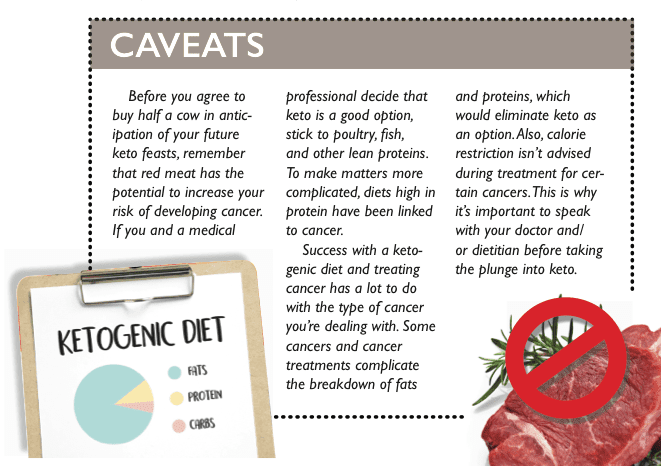
New research that explores cancer prevention and treatment is always exciting to hear about–especially when it’s related to something we can control like diet and lifestyle. A ketogenic diet is the hot topic right now, so it isn’t surprising to read that researchers are taking a look at what role the diet could play in cancer treatment. More research is needed before definitive conclusions can be made but we’ll go over a few reasons it’s causing a fuss in the realm of cancer research.
Keto in a Tiny Nutshell
Simply stated, the ketogenic diet is a low-carb, low-sugar, and high-fat diet that encourages
the body to use fat instead of glucose. If successful, the body produces ketones.These little guys can provide energy for neurons, help burn excess fat, and reduce inflammation.
A keto diet is low in sugar, so it reduces chronic inflammation that would fuel cancer.
Cutting Off Cancer’s Fuel
Carbohydrates break down into glucose, and because keto limits carbohydrates, it holds the potential to starve cancer cells of glucose–a crucial compound that cancer cells need in order to grow. Cancer cells also have malfunctioning power plants (mitochondria) and higher insulin receptors than other cells; the cells rely on glucose to power up. Intermittent fasting can also help increase your production of ketones, lower blood sugar, and deprive cancer cells of fuel.
Caloric deficiency combined with a ketogenic diet is being studied for its potential to reduce tumor growth. Research conducted on mice has shown promise for brain tumor reduction. Another amazing twist: free radicals are also reduced while your body processes ketones as fuel!






